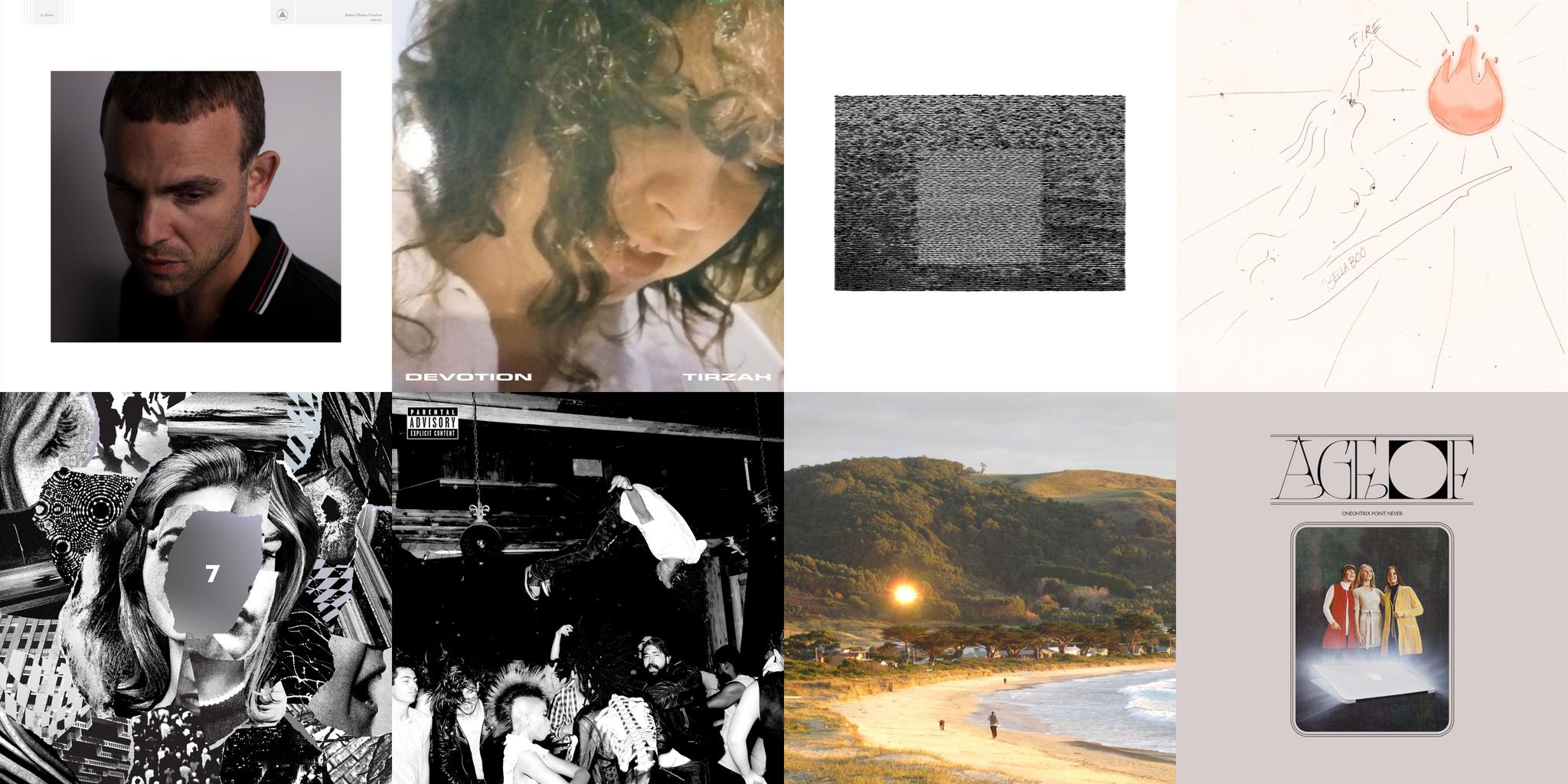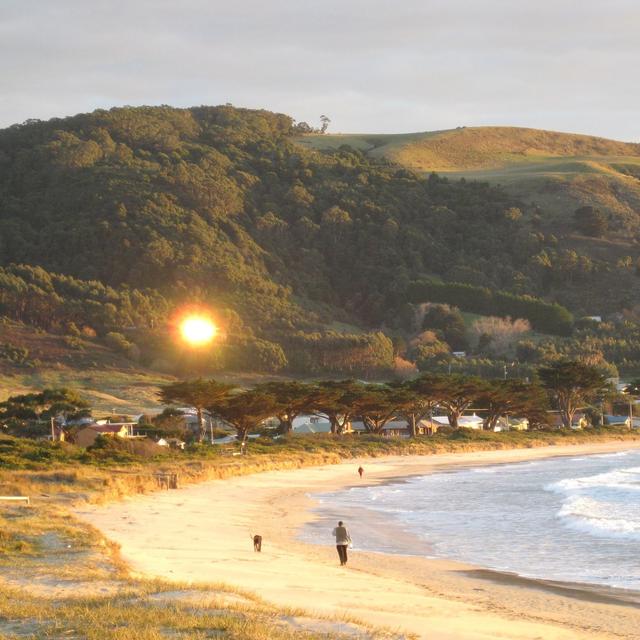
Gorilla vs. Bear's Favorite Albums of 2018 (So Far)
We're not quite halfway through 2018, but here's our annual recap of the albums + songs of the first half of the year anyway. I’ve excluded any records
Source

With every record, Damon McMahon aka Amen Dunes has transformed, and Freedom is the project’s boldest leap yet. The first LP, D.I.A., was a gnarled underground classic, recorded and played completely by McMahon in a trailer in upstate New York over the course of a month and left as is. The fourth and most recent LP Love, a record that enlisted Godspeed! You Black Emperor as both producers and backing band (along with an additional motley crew including Elias Bender Rønnenfelt of Iceage and Colin Stetson), featured songs confidently far removed from the damaged drug pop of Amen Dunes’ trailer-park origins. Love took two years to make. Freedom took three. The first iteration of the album was recorded in 2016 following a year of writing in Lisbon and NYC, but it was scrapped completely. Uncertain how to move forward, McMahon brought in a powerful set of collaborators and old friends, and began anew. Along with his core band members, including Parker Kindred (Antony & The Johnsons, Jeff Buckley) on drums, came Chris Coady (Beach House) as producer and Delicate Steve on guitars. This is the first Amen Dunes record that looks back to the electronic influences of McMahon’s youth with the aid of revered underground musician Panoram from Rome. McMahon discovered Panoram’s music in a shop in London and became enamored. Following this the two became friends and here Panoram finds his place as a significant, if subtle, contributor to the record. The bulk of the songs were recorded at the famed Electric Lady Studios in NYC (home of Jimi Hendrix, AC/DC, D’Angelo), and finished at the similarly legendary Sunset Sound in L.A., where McMahon, Nick Zinner, and session bass player extraordinaire Gus Seyffert (Beck, Bedouine) fleshed out the recordings. On the surface, Freedom is a reflection on growing up, childhood friends who ended up in prison or worse, male identity, McMahon’s father, and his mother, who was diagnosed with terminal cancer at the beginning of recording. The characters that populate the musical world of Freedom are a colourful mix of reality and fantasy: father and mother, Amen Dunes, teenage glue addicts and Parisian drug dealers, ghosts above the plains, fallen surf heroes, vampires, thugs from Naples and thugs from Houston, the emperor of Rome, Jews, Jesus, Tashtego, Perseus, even McMahon himself. Each character portrait is a representation of McMahon, of masculinity, and of his past. Yet, if anything, these 11 songs are a relinquishing of all of them through exposition; a gradual reorientation of being away from the acquired definitions of self we all cling to and towards something closer to what's stated in the Agnes Martin quote that opens the record, “I don’t have any ideas myself; I have a vacant mind” and in the swirling, pitched down utterances of “That's all not me” that close it. The themes are darker than on previous Amen Dunes albums, but it’s a darkness sublimated through grooves. The music, as a response or even a solution to the darkness, is tough and joyous, rhythmic and danceable. The combination of a powerhouse rhythm section, Delicate Steve’s guitar prowess filtered through Amen Dunes heft, and Panoram’s electronic production background, makes for a special and unique NYC street record. It’s a sound never heard before on an Amen Dunes record, but one that was always asking to emerge. Eleven songs span a range of emotions, from contraction to release and back again. ‘Blue Rose’ and ‘Calling Paul the Suffering’ are pure, ecstatic dance songs. ‘Skipping School’ and ‘Miki Dora’ are incantations of a mythical heroic maleness and its illusions. ‘Freedom’ and ‘Believe’ offer a street tough’s future-gospel exhalation, and the funk-grime grit of ‘L.A.’ closes the album, projecting a musical hint of things to come.

Domino are honoured to introduce Devotion; the hugely anticipated debut album from one of London's most exciting underground talents, Tirzah. Arriving on the back of a lauded run of releases on Greco Roman, Devotion shines a brilliant new light on Tirzah's unique experimental pop, exquisitely soulful voice and potent contemporary lyricism.


Swapping producer Chris Coady for Spaceman 3\'s Pete \"Sonic Boom\" Kember, Alex Scally and Victoria Legrand fully embrace their bliss on *7*, their haziest, dreamiest album yet. They move seamlessly from meditative to trippy, adopting swelling, stately, Spector-swilling-martinis-with-Eno arrangements on \"Last Ride\" and entering a reverb-drenched citadel of synths on \"L\'Inconnue.” Seeming more unabashedly themselves than ever, this is the sound of Beach House doubling down on the aqueous dream-pop perfection that made them indie heroes in the first place.
7 is our 7th full-length record. At its release, we will have been a band for over 13 years. We have now written and released a total of 77 songs together. Last year, we released an album of b-sides and rarities. It felt like a good step for us. It helped us clean the creative closet, put the past to bed, and start anew. Throughout the process of recording 7, our goal was rebirth and rejuvenation. We wanted to rethink old methods and shed some self-imposed limitations. In the past, we often limited our writing to parts that we could perform live. On 7, we decided to follow whatever came naturally. As a result, there are some songs with no guitar, and some without keyboard. There are songs with layers and production that we could never recreate live, and that is exciting to us. Basically, we let our creative moods, instead of instrumentation, dictate the album’s feel. In the past, the economics of recording have dictated that we write for a year, go to the studio, and record the entire record as quickly as possible. We have always hated this because by the time the recording happens, a certain excitement about older songs has often been lost. This time, we built a "home" studio, and began all of the songs there. Whenever we had a group of 3-4 songs that we were excited about, we would go to a “proper” recording studio and finish recording them there. This way, the amount of time between the original idea and the finished song was pretty short (of the album’s 11 songs, 8 were finished at Carriage House in Stamford, CT and 2 at Palmetto Studio in Los Angeles). 7 didn’t have a producer in the traditional sense. We much preferred this, as it felt like the ideas drove the creativity, not any one person’s process. James Barone, who became our live drummer in 2016, played on the entire record. His tastes and the trust we have in him really helped us keep rhythm at the center of a lot of these songs. We also worked with Sonic Boom (Peter Kember). Peter became a great force on this record, in the shedding of conventions and in helping to keep the songs alive, fresh and protected from the destructive forces of recording studio over-production/over-perfection. The societal insanity of 2016-17 was also deeply influential, as it must be for most artists these days. Looking back, there is quite a bit of chaos happening in these songs, and a pervasive dark field that we had little control over. The discussions surrounding women’s issues were a constant source of inspiration and questioning. The energy, lyrics and moods of much of this record grew from ruminations on the roles, pressures and conditions that our society places on women, past and present. The twisted double edge of glamour, with its perils and perfect moments, was an endless source (see “L’Inconnue,” “Drunk in LA,” “Woo,” “Girl Of The Year,” “Last Ride”). In a more general sense, we are interested by the human mind's (and nature’s) tendency to create forces equal and opposite to those present. Thematically, this record often deals with the beauty that arises in dealing with darkness; the empathy and love that grows from collective trauma; the place one reaches when they accept rather than deny (see “Dark Spring,” “Pay No Mind,” “Lemon Glow,” “Dive,” “Black Car,” “Lose Your Smile”). The title, 7, itself is simply a number that represents our seventh record. We hoped its simplicity would encourage people to look inside. No title using words that we could find felt like an appropriate summation of the album. The number 7 does represent some interesting connections in numerology. 1 and 7 have always shared a common look, so 7 feels like the perfect step in the sequence to act as a restart or “semi-first.” Most early religions also had a fascination with 7 as being the highest level of spirituality, as in "Seventh Heaven.” At our best creative moments, we felt we were channeling some kind of heavy truth, and we sincerely hope the listeners will feel that. Much Love, Beach House

Even before Playboi Carti’s breakout single, “Magnolia,” early fans were expressing an insatiable demand for new music from the rapper. *Die Lit* comes a year after the self-titled album that brought us that hit, with 19 tracks to make up for the wait. Having joked openly about being called a “mumble rapper,” Carti aggressively leans into the distinction here, thickening his Atlanta accent and even pitching up his delivery on songs like the spacey “Fell in Luv” and “FlatBed Freestyle,” where his couplets devolve into rhythmic yet indecipherable vocals. On the whole, *Die Lit* is a collection of earworms built on minimal and bass-heavy production from Pi\'erre Bourne, assisted occasionally by contributors like Lil Uzi Vert, Skepta, and Nicki Minaj.



Produced and composed by MUNYA Synth and bass synth by MUNYA, drums by Miles Dupire, guitare by Gabriel Lambert and MUNYA and acoustic bass by P.O. Rioux. Mixed and mastered by P.O. Rioux Album cover art by MUNYA Special thanks to my Benjamin X


